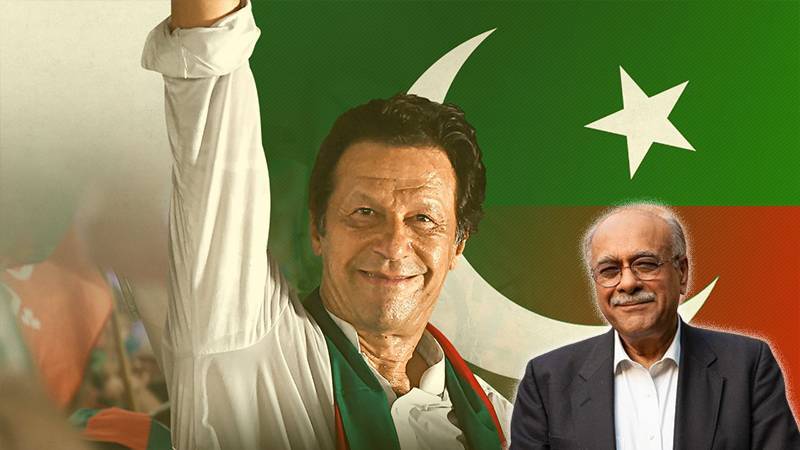
Pakistan Tehreek-e-Insaf (PTI) founder and former prime minister Imran Khan could get more relief from the courts soon after Eidul Fitr.
While speaking at a private news channel, senior analyst Najam Sethi said Khan could be acquitted in three cases after Eid, adding that stay orders will be issued in case the court decision is challenged and he could remain inside jail for three to four months.
The analyst said that Khan is fully focused on his cases, and he has started getting relief from the courts.
He further said that if the detained PTI leaders are released as a result of any deal, then there will be another development, and all detained or absconding PTI leaders will be seen taking part in political activities again, while the 'space' of politicians in PTI that was given to lawyers will again be pushed back.
Sethi said that the PTI's political leadership will emerge again. All these developments indicate that a few avenues of communication with Imran Khan have definitely opened up.
He said, “Many signs are visible. It all started by shifting Khan’s wife, Bushra Bibi, to the Bani Gala sub-jail. Then Khan’s statement regarding his willingness to talk to the establishment, in which he stated that he has never refused to talk to them. Thirdly, Khan and his wife got relief and bail in various cases. Fourthly, Khyber Pakhtunkhwa Chief Minister Ali Amin Gandapur, along with the ministers, went to Corps Commander House Peshawar for Iftar. Fifthly, CM Gandapur went and met Prime Minister Shehbaz Sharif.”
The analyst said that the sixth sign is that Sher Afzal Marwat was taking a 'hard line' against the establishment, so he has also been relieved of a role in the party. “So I think something is brewing, and it's a good strategy on both sides. It has been said before that the problems will not be solved by putting people in jails; we have to talk and find a way out. Negotiations start early, but their results emerge slowly,” he added.

